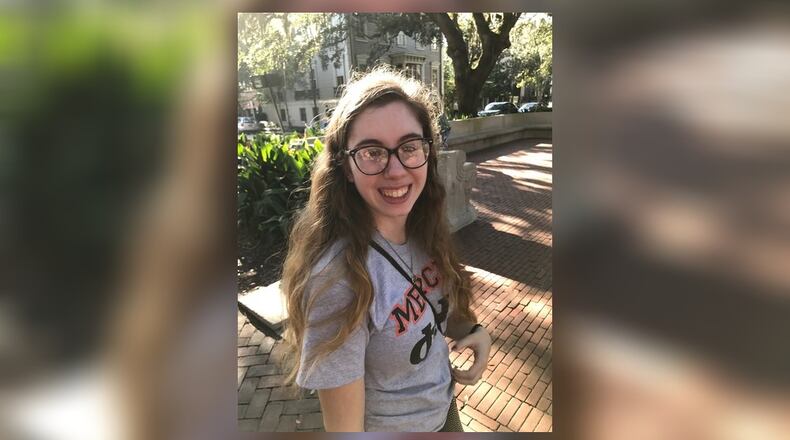She can feel tension in her chest, tremors vibrating her hands. How, she wonders, can a person be on the verge of tears at all times and get anything done?
Rylee Kirk, a 21-year-old Mercer University senior, has struggled for years with depression and anxiety, but the disruption over the novel coronavirus has made it worse for her and many other Georgians who already had mental health concerns. Kirk, a journalism major, said she can’t afford her co-pay for therapy because her job is at the university, which is shuttered for who knows how long.
“Everything still just feels surreal,” Kirk said, “like I’m going to wake up from a dream.”
This, of course, is no dream. Not even a nightmare. Everyone is awake and struggling to navigate a changed world in which friends now appear mostly from a distance, in text, phone calls or as pixelated faces on screens. The stress has kept a consistent stream of calls to the Georgia Department of Behavioral Health and Development Disabilities’ crisis hotline and other help lines. And concern is mounting for the well-being of those who fight mental health troubles and addiction.
Various behavioral health groups have expanded their use of virtual meetings and webinars to allow people who are experiencing stress and anxiety amid the pandemic to feel a sense of community. And some counselors will allow their clients to participate in virtual therapy.
Neil Campbell, executive director of the Georgia Council on Substance Abuse, said the agency has been reaching out to people in its recovery programs to check in.
“We’re trying to let people know they’re not alone,” she said.
» PHOTO GALLERY | Coronavirus: Metro Atlanta adjusts to shifts in daily life
Mental health advocates are encouraging those who are anxious about the pandemic to find ways to connect with others, whether it be by picking up the phone or video chatting with friends. “We tell people to keep physical distance but maintain a social connection,” said Jewell Gooding, executive director of Mental Health America of Georgia.
Kirk has been doing all that.
When fears of the pandemic closed Mercer, she left her apartment in Macon and headed east to her parents’ house in Effingham County, outside Savannah. The little town of Rincon, piney and dripping with Spanish moss, is where Kirk grew up after leaving New York in elementary school. But it’s a hard place to be, she said, because of the bullying she went through in high school and the general feeling that she didn’t belong there — not in high school and not now.
She’s been spending time with her parents, who she said are both “high risk” for serious complications if they contract COVID-19, the disease caused by the novel coronavirus. Her mom’s immune system is compromised, which has everyone in the house worried.
Kirk also is wrestling with the disappointment of her senior year in college collapsing suddenly. She’d been planning to go to graduate school in the fall. Now fall seems far away, a hazy time in the distance she can’t quite make out. How will life be in the fall?
» RELATED: With campuses closed, Georgia college students want out of leases
To cope with the uncertainty, the 21-year-old has been walking around her parents’ neighborhood. Breathing in the air. FaceTiming her sister to vent. Trying — and failing — to ignore the gunshots ringing in the woods, where marksmen are apparently taking out their stress by pulling triggers. More than once, Kirk has slipped away to her room, stuffed her face in a pillow and screamed.
It made her feel better, she said, smiling on a video call in front of the Marilyn Monroe poster she hung in her room in high school.
» AJC COMPLETE COVERAGE: Coronavirus in Georgia
Gooding’s organization, Mental Health America of Georgia, has been encouraging people through webinars to try things such as managing stress levels by setting aside a daily “worry hour” to contemplate the things that are beyond an individual’s control, practice relaxation techniques and maintain a healthy diet.
Kirk doesn’t have a “worry hour” per se, but she keeps a schedule and tries to eat well. In the past few days, a new routine has emerged now that her classes have moved online.
She wakes at 8 a.m., takes the dog out, walks a mile, eats breakfast, has a shower. Class and homework stretch from 9 a.m. to 5 p.m. Sometime after 5, the 21-year-old drinks a beer under the awning in the backyard. The dog is there, along with her parents.
Kirk tries to give herself some latitude to get upset or deviate from her schedule.
“Life has never been this crazy before,” she said. “We have to be gentle with ourselves.”
Keep Reading
The Latest
Featured




